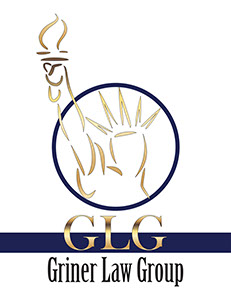
Telephone: (574) 255-1776
Text: (574) 400-5292 (law2)
Fax: (574) 255-2341
Email: GaryGriner@GrinerLaw.com


In every case, we will treat our clients with respect and work hard to achieve the best results

Estate Planning

ESTATE PLANNING & FINANCIAL / LEGAL PLANNING:
Most people think of a Last Will & Testament when they hear the term “estate planning”. But, estate planning is different for everyone. For many people a simple Will is sufficient. For many others a simple Will with a Revocable Trust (Probate Avoidance Trust) is appropriate. And some people will need very sophisticated plans with multiple trusts and agreements.
Estate planning can include a wide variety of matters which depend on your family’s circumstances. Some of the factors that your estate planner must consider are your age, health, marital status, assets, liabilities, family structure, special needs, investment options, insurance, taxes, and most importantly your goals and wishes.
Generally, the idea of estate planning is to carry out your wishes after you die. We also include planning for the possibility that you may become incapacitated and no longer able to make decisions and take care of yourself, Medicaid planning, special needs planning, and asset protection planning. Most of our clients seek security and predictability for themselves and their families. Specific goals can include things like - avoiding probate, reducing taxes, providing for children, providing for special needs children and adults, small business succession planning - whatever you have in mind for you and your loved ones.
The path to reaching those goals can include several legal documents: Will, Trust, General Power of Attorney, Healthcare Power of Attorney, Living Will, Quitclaim Deed, Special Needs Trust, and the list goes on and on. In some cases, estate planning also involves purchasing insurance, making gifts to loved ones while you are alive and well, changing the way property is titled, etc.
Some common estate planning terms are defined below:
Beneficiary: A person who has any interest in a trust. Property in a trust is held and administered for the benefit of persons named in the trust instrument (who are the beneficiaries).
Codicil: A document which supplements, amends or revokes portions of an existing will.
Devisee: The person designated in a will to receive a distribution of property from a decedent.
Estate: The property and rights of a decedent which exist prior to the distribution of that property in accordance with a will or pursuant to applicable intestacy provisions.
Fiduciary: Any person who holds a person of trust over assets of or decisions relating to another person. Common examples of a fiduciary are a personal representative, trustee, guardian.
Grantor: The person who transfer property to a trustee to establish a trust.
Guardian: A person who has qualified and been appointed to act as the guardian of a minor or incapacitated person. a guardian has responsibility for the continuing care and supervision of the minor or incapacitated person.
Intestacy or Intestate: The status of dying without making a will or other distribution to take effect upon death. Statutory provisions have been developed by all state legislatures which direct how property of a deceased person is to be distributed when such person dies without making a will or other complete distribution of property.
Irrevocable Trust: A trust which cannot be revoked, withdrawn or cancelled.
Personal Representative: The fiduciary appointed to administer the estate of a deceased person. The personal representative has responsibility to submit the decedent’s will to probate (if a will exists), inventory and value the assets of the decedent, pay the proper debts and liabilities of the decedent, pursue or release claims of the estate, and distribute property of the decedent to the persons entitled to receive it either under a valid will or as directed pursuant to the intestacy statutes.
Probate: The court proceeding and process which provides a statutory mechanism to establish the authenticity of a will, inventory and value property of a decedent, pay debts and expenses of the decedent, and distribute property to the persons entitled to receive it.
Revocable Trust: A trust which may be revoked, withdrawn or cancelled by the grantor(s). A revocable trust may be commonly referred to as a “living trust”.
Testamentary Trust: A trust established or which takes effect upon the death of the grantor.
Testator/Testatrix: Creator or maker of a Will.
Trust: A relationship where a grantor transfers property to a trustee to be held, administered and distributed for the benefit of the trust beneficiaries.
Trust Agreement: The document which establishes the terms under which the trust is administered, identifies the property which is transferred to the trustee, identifies the beneficiaries, and sets forth conditions upon which property of the trust may be distributed to the beneficiaries.
Trustee: A person who assumes the responsibility to administer a trust for the benefit of the beneficiaries of the trust. A trustee is a fiduciary who generally owes the highest duties to the beneficiaries of the trust.
Will: A document which takes effect at death to dispose of property and which may express other desires such as the nomination of a person to act as personal representative of the estate, the establishment of trusts, the appointment of a guardian and/or conservator, charitable devises, and the exclusion of certain heirs. Pursuant to Indiana law, a will must be in writing, be signed by the testator, and be signed and witnessed by two persons. In addition, the testator must be 18 or more years of age, be of sound mind, and act under no constraint or undue influence.


